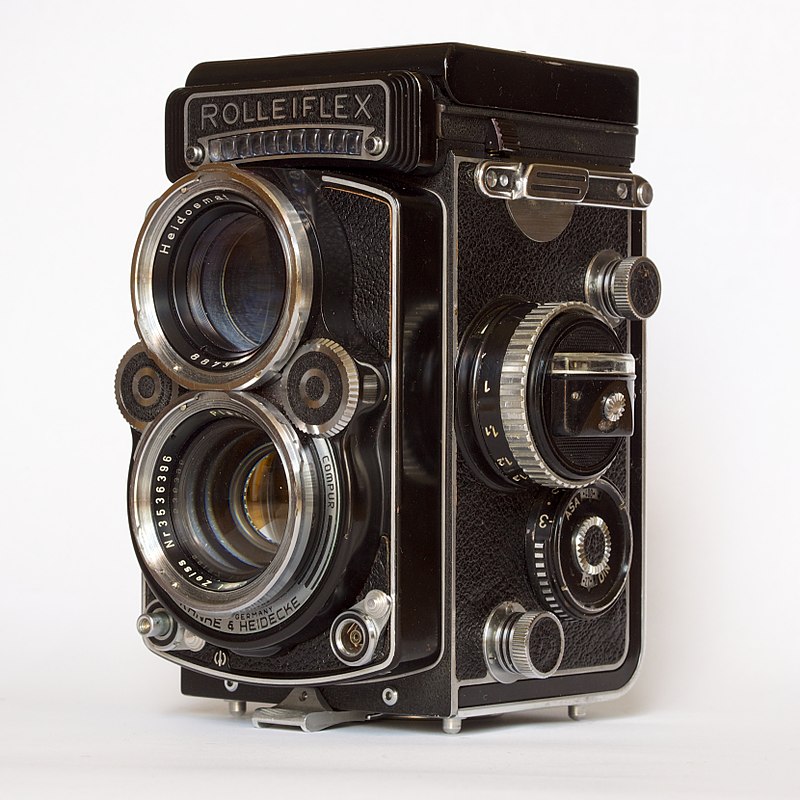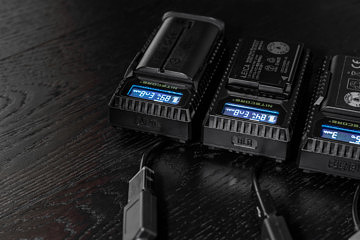
Retro trends do not stop at photography. Analogue photography is slowly returning to a market in which digital photography has prevailed. Analog meets digital. There are professionals who love analogy, for others it's just yestertech.
The word photography comes from the Greek and means "painting with light". Analogue photography appears to many as a new medium. What is it that inspired many young and old photo fans to work with films. Some photographers think that they can make themselves appear innovative for new markets with analogue photography. Many people today think that photography is art, thereby developing an inherent attraction for those who aspire to create something of lasting value.
However, to many this confirms the evolution of photography; nothing has changed in the use of light to create images - on wood, glass, film or silicone. They also find it suspicious when people fall into great affection or even the belief that their pictures are "better" when it is just harder to develop the photos.
In short, you can work creatively with any medium. Most photographers believe that digital work includes all the aesthetics of analogue. So why spend time and money and questionable chemicals to produce images that can be achieved with silicone?
One photographer said, "I develop my pictures". But today he uses a computer program instead of a darkroom. He calls that "digital-darkroom techniques". And his credo is: "Think analogously, work digitally."
No one today needs darkrooms and dangerous chemicals for the post-production of an image. A computer screen in the studio instead of clip tests and the experience of a color laboratory, that's enough. And digital production opens up more development and editing options for the photographer.
Many clients in the advertising industry would not understand why anyone would chose to work analog. Advertising directors would definitely wonder if the photographer has a good understanding of photography. Just ask a photojournalist, sports or wedding photographers, which form of work they prefer, you will always get the same answer: "digital".
There is no difference. Good photographs are the result of the skills and equipment of the photographer and his skill to develop images. Analog or Digital does not make the difference. It is false to believe that the use of roll films, which require more time for image composition and development, make the images better or more creative. The process is the same, whether analog or digital, and those who do not follow the basic principles of photography will not get the most out of their photography.
It is hard understand why someone does not use current technology in 2018. Ask Eugene Atget if you could. This early pioneer of street photography died because he used arsenic to develop his photographs in the darkroom. Analogue photography has no longer any real chance in the professional market.
Analog photography is in the process of establishing itself as an art form and craftsmanship and is not in competition with digital photography. Just as painting continued to exist after the invention of photography, analog photography will continue to exist today.
Ansel Adams at work with a large format camera
Analogue photography will establish itself as a niche market with currently unpredictable volumes. Prerequisite: This market accepts price levels that cannot be compared with the mass market before the year 2000. Currently this is not the case, which is why there is an acute danger that in the foreseeable future, when the "old" idealists are extinct, no analogue material will be available anymore. In the end, the market has to be profitable for everyone.
Kodak recently released Ektachrome as a new film on the market
Many miss real medium format, because all digital "medium format cameras" have a much smaller recording format than the old 6x6cm, 6x7 or even 6x9 cameras. In fact, they are not even 6 × 4.5. This is a format that rarely makes sense compared to high-resolution, full frame digital cameras.
Leica S medium format digital camera system
In most cases digital has the higher quality and the greater efficiency. But, there is a catch: Unfortunately, the size of image sensors is mostly associated with their resolution. The pixel race is still in full swing for the most part. Regardless, the effects of larger recording formats on the image effect are immense. The focal length of a normal lens is defined by the diagonal of the recording format, for 24x36cm it is rounded off to 50mm, for 6x6cm 80mm and for 4x5inch 150mm. This means, in the latter case, one uses a lens with an angle of view, which corresponds approximately to human vision, but has the depth of field of a 150mm telephoto. If one considers that in the pre-digital era cameras with larger formats than 35mm were widespread, it should become clear that through digital photography we lost an entire optical cosmos. Most of the famous photographers have worked in medium format, whether Avedon or Penn. Weegee made his grimy photos with a 4 × 5 press camera. Even 35mm photographers like Robert Capa and Alfred Eisenstaedt have always used medium format as well. Many of today’s photographers would be willing to spend a small fortune for a 6 × 6 digital Rollei TLR.

Rolleiflex 2.8 F
For photography up to full frame 24x36mm there is no longer a reason to work with film, apart from emotional aspects. It gets really interesting with formats that are bigger. Anyone who uses 4 × 5 inches or 8 × 10 inches will be rewarded with a picture style that clearly stands out.

The Leica/Sinar p3-df view camera can be used analog as well as digital
After the almost complete collapse of the film market, we have seen a recovery in recent years, old films and papers are reissued, but today it is not much more than a niche market. Especially with a Leica Monochrom, but also with many of the other high end digital cameras, it is possible to get results that easily rival the high quality analog images of yesterday. In this regard diehard fans of analog photography are just kidding themselves.
For other articles on this blog please click on Blog Archive in the column to the right
_____________________________________________________________________
_____________________________________________________________________
 Buy vintage Leica cameras from America's premier Leica specialist
Buy vintage Leica cameras from America's premier Leica specialist
http://www.tamarkinauctions.com/ http://www.tamarkin.com/leicagallery/upcoming-show

Buy vintage Leica cameras from
America's premier Leica specialist
http://www.tamarkinauctions.com/ http://www.tamarkin.com/leicagallery/upcoming-show
Click on image to enlargeOrder: info@gmpphoto.comPlease make payment via PayPal to GMP Photography
Click on image to enlargeOrder: info@gmpphoto.com
Click on image to enlargeOrder: info@gmpphoto.com
Click on image to enlarge
Order: info@gmpphoto.com
Please make payment via PayPal to GMP Photography
Click on image to enlarge
Order: info@gmpphoto.com
Please make payment via PayPal to GMP Photography
Click on image to enlarge
Order: info@gmpphoto.com
Please make payment via PayPal to GMP Photography

























0 nhận xét:
Đăng nhận xét